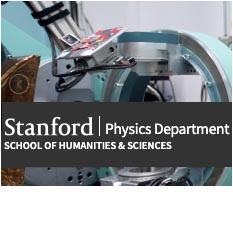
Applied Physics/Physics Colloquium: Can a solid-state quantum simulator help us understand materials?
Hewlett Teaching Center, Rm. 201
When Feynman suggested quantum-based computers in the '80s, he wasn't primarily thinking of the general-purpose quantum computers intensely pursued by companies and academic researchers today. Rather he imagined using quantum mechanical objects to simulate aspects of our quantum world. Effective model Hamiltonians are central to condensed matter physics, as they can capture the essence of material properties while avoiding the full complexity of actual materials. But even those model Hamiltonians can be intractable to treat on classical computers. Very perfect realizations of model Hamiltonians relevant to materials can now be built with ensembles of cold atoms or with nanopatterned solid state systems similar to those used to make qubits. I will compare new experimental results to cutting-edge classical computation, and then ask: What happens when we (soon!) get our wish and achieve a "quantum simulator" that can describe certain interesting Hamiltonians with power beyond the best classical computers and algorithms?